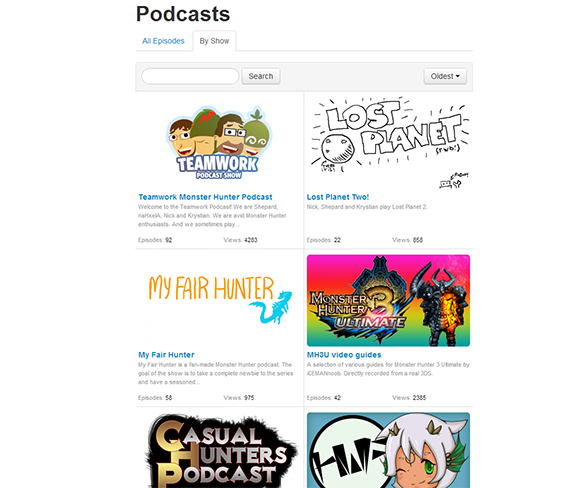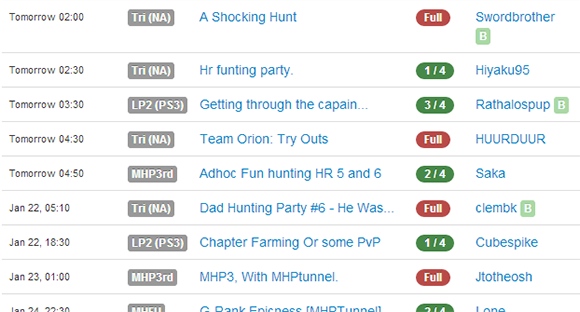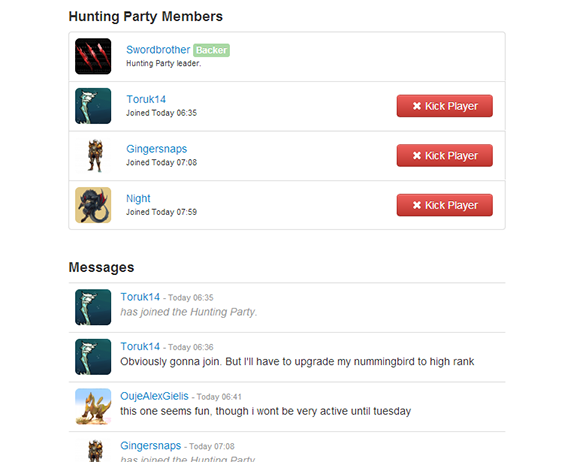I haven’t been posting too regularly recently. Ever since the working schedule associated with my previous work fell away I’m having a hard time maintaining previous habits. One thing that distracted me a lot recently was my work on the website of my podcast: Club Teamwork.
I’ve been working on it at least since December. Just last Friday I released the last major update. Any further updates from now on will be little tweaks and complimentary functions. It was a very demanding project. On the other hand, it was also a very liberating one. I actually got back to a deliberate working schedule. I learned a lot web development techniques. I also shipped a product. Let me tell walk you through the website.
We already had a website previously. It was based on Wordpress. It was a blog where we could post articles and podcasts. While the website worked, I was always worried that some important elements were missing. My biggest worry was that in order to keep the website interesting for visitors, we had to generate content on a regular basis. Producing the podcast was time-consuming enough already. Requiring us to churn out articles on top of it was asking a lot. It made it very difficult to establish and maintain a certain level of quality. The website was made for the consumption of content. The only source of that content was the podcast crew. There were no other activities on the website. The website didn’t generate any content on it’s own. I’ve seen similar websites in my professional life. They usually fail once the shine wears off and the stream of content shrinks to a sorry trickle. To be fair, there was a forum and it survived and thrived. But it was never integrated very well.
So in my mind I kept honing a new concept for a website. One that would generate content with minimal extra input from the podcast crew. One that would actually cater to our audience with multiple, different activities. One that would have all the different functions of the website properly integrated. Last November I realized that I probably could pull it off.
The website is built on 3 different activities. Each activity is based on a question or request we would frequently get in comments and E-Mails from our audience.
“Where is the rest of your podcasts?”
Most of our podcasts are hosted on YouTube, which is a great heap of content. But it’s not a very well organized heap. Additionally, the podcast went through at least 2 major shifts. We went from an audio podcast to a video podcast on episode 19. We also changed YouTube channels and the name on episode 68. The cherry on top is that we actually took down some episodes due to copyright warnings. As a result it was almost impossible to browse our back catalog. Another question we often got was “Is this the most recent podcast?”. There was generally just no HOME of the podcast see what happened most recently.
So the first thing I wrote was a podcast database system. It’s a very simple, manual database of links to various videos and audio files. It’s not based on any RSS feeds or automated systems. This had the nice side effect of forcing us to actually go through our back catalogue and fix all of the issues people had when looking for older videos. It brought them all together in one big timeline.
While working on the database it occurred to me that it would be very easy to expand the system for multiple podcasts. We realized that we could easily turn this from a monolithic database for just one show into a more open community portal with multiple podcasts being featured in parallel.
Which just happen to address a different concern I had. Our podcast has been pretty popular. Over the years, we have been observing other Monster Hunter podcasts stepping up and also releasing some really good content. They never were able to achieve the kind of viewer numbers as we did. As illogical as it sounds, I always found it very depressing. One might think that overcoming competition is a goal worth aspiring. But I don’t believe this capitalist approach is a healthy one where thinking about a community. The success of our podcast very much depends on people being engaged in the topic we address. If multiple podcasts centered around the same topic can prosper, it’s a sign of a strong and active community. Multiple podcasts can increase the reach of a community. They can create cross-pollination. They represent fail-safes that can potentially keep the candle burning even if one shows needs to go on hiatus. Finally, they create opportunities for the individual podcasts to define their identities more sharply and address different audiences. That’s why we always promoted other podcasts on our own show. We were always a bit sad that the effects on the actual viewer numbers of those other shows weren’t as pronounced as we hoped. The new website would allow us to do this in an even more prominent way and on a regular basis.
I think the keystone that really makes the podcast section work is the big carrousel on the frontpage. New episodes a featured with a big screenshot every time you enter a website. It unmistakably drives the idea home what the most recent episode is. It has the potential to make people interested in shows they haven’t tried yet.
“Can I hunt with you guys?”
Probably the most important and most unique feature of the website is the Hunting Party system. It’s a way for visitors to schedule gaming sessions in Monster Hunter with other people. Hunting Parties are all featured prominently all across the website. There is a comprehensive filter and search tool so the website can potentially handle a large volume of those happening at the same time. The system takes care of frequent stumbling blocks like time-zone conversion. Finally, the website also sends out E-Mails to keep participants of a Hunting Party up to date and remind them when the scheduled time has come.
Monster Hunter is clearly a game that is based on playing with other people. We frequently received requests from our audience to organize gaming session. But we found that it was actually incredibly difficult to follow-up on those requests. Impromptu invites were impractical. Even if you just happened to have an hour of free time, by the time you see the invite, the person who posted it might have lost the patience and went away. Scheduling ahead was more promising. But there was a surprising amount of information that needed to be exchanged: time, timezones, game server, rank, goal, etc. Open systems like forums or Facebook required a lot of initiative and discipline to make it work. Even if you got a group together, maintaining multiple groups on a regular basis requied too much effort. If it was hard for us to play with our listeners, it was even harder for our listeners to play with each other.
So we saw that people would post requests. But important information was missing. By the time somebody responded and tried to clear up the confusion the initial scheduled time was over. When we scheduled a date, there were too many people on board and the chance to actually play with us was relatively slim. We needed a system that would help people schedule and maintain lots of those sessions on an ongoing basis and in a sustainable way. A system that would help with the menial task of keeping everybody informed about who is hunting where and with whom.
The current solution was clearly inspired by trueachievements.com and it works like a charm. After an exceptionally rough start I was using Hunting Parties successfully for the last two weeks. The number of scheduled parties is steadily increasing. I’m especially fond to see that the system was well received among older players. As a school student, you may have the patience to waste an hour to gather a team out of random players. As an adult with a job and a family, an hour after the kids have gone to bed is ALL you ever get. You want to make sure the time is well spend actually playing and not wasted by waiting for random players. That’s exactly what the system allows them to do.
“What is the best way to _____?”
Very early in the podcast we started answering questions. We realized very soon that people were asking a lot more question than we could ever answer. Monster Hunter is a game that has a lot of mysteries and secrets built in. Discovering them is part of the allure. A good Monster Hunter community should provide a way of maintaining that information flow. Podcasts and forums are a good start but they both have their limits. Forums are prone to offtopic derailments. If somebody asks a question there, there is a danger that the issue never gets a proper answer. When searching for a similar issue somebody else had in the past, you might have to wade through a long discussion until you get to the proper answer. We usually make sure to actually answer the questions on our podcasts but they aren’t searchable. We often found ourselves in a situation where people would ask for a question which we already answered. But we usually couldn’t even point them to the episode ourselves.
The current solution is basically a modern Q&A system found on websites like Quora, StackOverflow or Yahoo Answers. I studied the systems on those websites and extrapolated something that could be used for our website and implemented in a reasonable ammount of time.
Even with such a bare-bones implementation, the quality of answers we get from the community is pretty overwhelming. It’s the youngest part of the website and it probably had the best start of all of the features.
I do have some worries if the system will be able to prevail in the long term. Websites like GameFAQs do offer Q&A systems for quite some time now. The MiiVerse system of the Wii U might make Q&A system in general obsolete. Why even positing on website when you can crowdsource any issue without putting away the controller? On the other hand, one of the strengths of the website is that everything is integrated. So you while you check the date of your Hunting Party you also notice a new podcast is up and answer a question or two while that’s loading. So in any case, I’m very curious to see how this plays out.
Future Developments
While creating the website I had to cut down some features just to get anything done. Additionally, as people are using the website, we are getting feedback on what kinds of features to implement. Here are some ideas on my wishlist.
-
Rating System An eBay-like rating system so people can rate the reliability of other hunters in the Hunting Party system. Should help motivating people to take the commitment to Hunting Parties more seriously.
-
Follow-up Parties A lot of people asked for a way to do a follow-up session on a successful party. Ideally inviting the same people. That’s an obvious function I completely overlooked.
-
Minecraft Server Integration We initially wanted to use Hunting Parties system for Minecraft as well. But we soon realized that Mosnter Hunter and Minecraft are just very different games. I do have some ideas how to help with the management of the Minecraft server I want to try out.
-
Question Tagging The question system is a very rigid category system. I initially wanted to make a flexible tag system like on StackOverflow. But I had to tone it down due to the complexity of that kind of system and due to usability concerns. As the number of question increases we might loosen up the system a little.
-
Question Quality Screening Something a lot of Q&A systems have are little interface tweaks that improve the quality of questions. For example, StackOverflow forces users to make a search on their question before allowing them to post. I didn’t think that was necessary for us yet. But as the system fills up with questions I’m getting some ideas for subtle interface changes to help people use the system more effectively.
-
Unified Messaging I specifically avoided a message system just because users would expect a lot of functions and it didn’t seem justified for a website of this size. I preferred to solve everything via eMail. As the website grows, I’m warming up to the idea of at least an event feed.
-
Social Features … and once we get into event feeds we can think about people following each other. Which then can turn into a small social network surrounding Monster Hunter.
If you have used the website and you have some ideas on how to proceed next, feel free to post it in the comments!
Summary
Overall, I’m incredibly excited with the result. It took a lot longer than I expected. But as mentioned previously, I learned a lot of web development techniques that should help me a great deal in future projects. There are also real, tangible benefits from the website. I have been using it myself in the previous weeks and they helped me a lot in actually playing the game. It’s always good to taste your own medicine and see it working. Finally shipping an actual product does wonder to for self-worth and motivation. It’s feels incredible seeing the website filling up with people and content. The feeedback is positive across the board. It really seems like it helped a lot pf people. So even though it was a challenging time, I came out of this project full of energy to tackle the next one. With that in mind, stay tuned!












Krystian I’ve said it else where and I will say it again here. Your work on this website has been amazing. It’s also helped reignite my passion for Monster Hunter. As you said it’s a game that really is it’s best with friends and the Hunting Party system has been amazing for getting groups together and making the most of everything.
It’s also helped spawn creativity and comradery and is a website I visit every day just for the conversations that take place inside the Hunting Party posts themselves between those taking part in the party and even those who missed a chance to claim a spot or just wanted to see what’s going on with a particular group.
I look forward to your future refinements on the page and know that you have a great future ahead of you with the passion and dedication you have given to this project and the podcast.
Hey Krystian,
Congratulations on the achievement of releasing such a great website. I’ve been using it as much as possible (I go by ‘clembk’ over there) and, like you mentioned, with someone with a job, wife and kid (soon to be “kids” in July), it’s great to create a hunting party and know that I’ll have some people to play with at a certain time on a certain day.
I’m also a huge fan of WordPress and do like to tinker with new projects. Love the theme you went with for teamworkcast.com and tweaks that you’ve made.
You’re a prime example (as well as everyone on the Teamwork cast) of why I really like the Monster Hunter community: we’re incredibly passionate about everything MonHun. And we look out for our own people, as your comment about other podcasts doing their thing and not garnering the kind of viewership you guys have amassed (My Fair Hunter being the best example I can think of). Sharing the spotlight, so to speak, with your podcasts section is an example of thinking; let’s get your recent podcasts in front of people but let’s also show off new videos from other Monster Hunter players.
Again, congrats. And thank you for putting in all of the blood, sweat & tears that you have with not only the podcast but the new site.
i saw it already few days / week ago, was great to see al the podcasts on one place – previously i was unaware of HOW MANY you all created already
is a very nice page, very to-the-point of the intended features, no bloatware or navigational BS – really like that and hate it in so many major games sites nowadays (especially game mag sites).
i can’t resist: you have atleast one “Mosnter Hunter” typo in the post